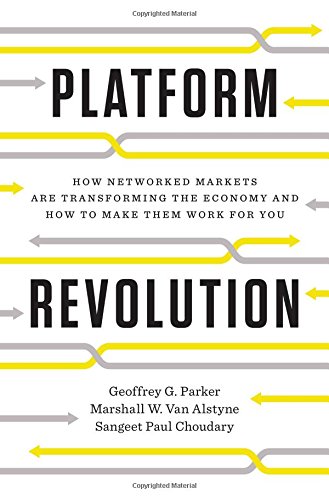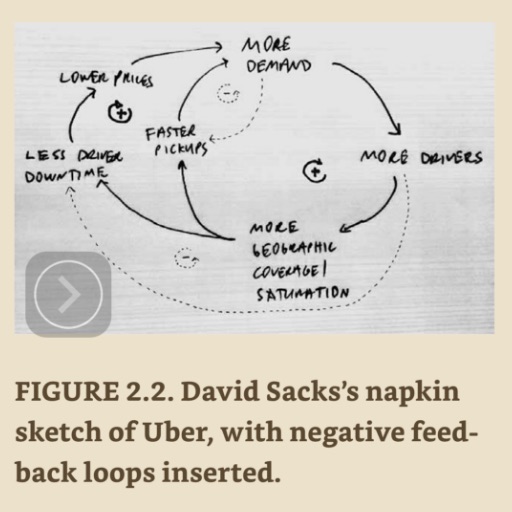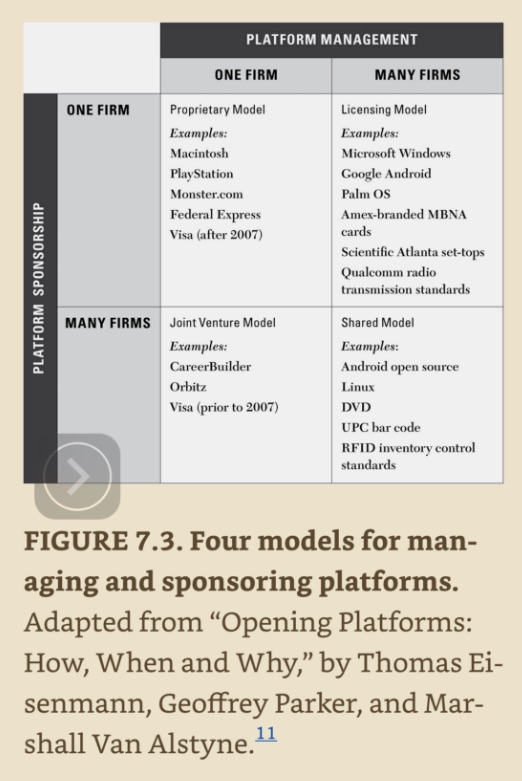Three key metrics an online platform operator needs to focus on
- Liquidity: likelihood a user will be able to find the inventory he is looking for
- Trust: knowledge/signal on how well the inventory is going to do it’s job
maintaining quality while unlocking new areas of supply
- Matching Quality: ease of finding the most relevant item for the task the user wants accomplished
curation:
needed to counter negative network effects
- decide what not to show specific participant
- gather better data on their users
- improve their matching algorithms overtime
- ensure manual curation is phased out overtime
once critical mass happens curation is turned over to algorithm
Network effects (two sided market place example)
- Same side effects - positive / negative
- Cross side effects - positive / negative
Viral effects
- user getting more users to join
Design of a platform
- focus on the why - the **core interaction**
- components
the participants - producer and consumers
- the value unit - from producer to consumer
- the filter - help remove irrelevant value units
Operating the platform
- To avoid Bloatware
- monitor user behavior to reveal unexpected patterns - suggest new areas for value creation
- user commitment is more important than user acquisition: retention and engagement
- Standardize interface through APIs
- Different life cycle requires different metrics
Actional
- Accessible
- Auditable
Incumbent versus new-entrant
- existing value chains and complementary assets
- new entrant needs differentiated launch strategy versus incumbent
Solving the chicken and egg
- solve a real problem for one side first
- piggyback on another platform
- seeding with self created value units
- provide incentives to attract key users to platforms - hot chics/models for dating sites
- big bang - dump lots of money into marketing
- evangelism - attract producers who will then induce their customers to come to platform
- micro-market - focus on fully saturating one niche at a time
Monetization
- Be wary of destroying quality of value unit during monetization process
- ability to monetize might increase dramatically when number of users decline
- approaches
enhanced access
- advertising
- need to decide precisely where system can afford to create friction
- only capture value after value unit has been created and exchange with satisfaction between producer and consumers
Platform openness
- Platform sponsorship versus platform management
- players
developers
- users
- managers
- learned from cities - governance
giving partners a voice
Market failures
- information asymmetry - one side uses facts for personal advantage
- externalities
- monopoly power
- risk
Platform competition
- leveraging the value of data
- fostering innovation and then capturing value
- preventing multi-homing - one person many platforms
- redefining mergers and acquisitions
conditions for fertile ground needed for platform to arise
- information intensive industry
- high regulatory control
- high failure costs
- exanokes
education / classrooms
- healthcare
References
- *Platform leadership*, Annabelle Gawer and Michael A Cusumano


